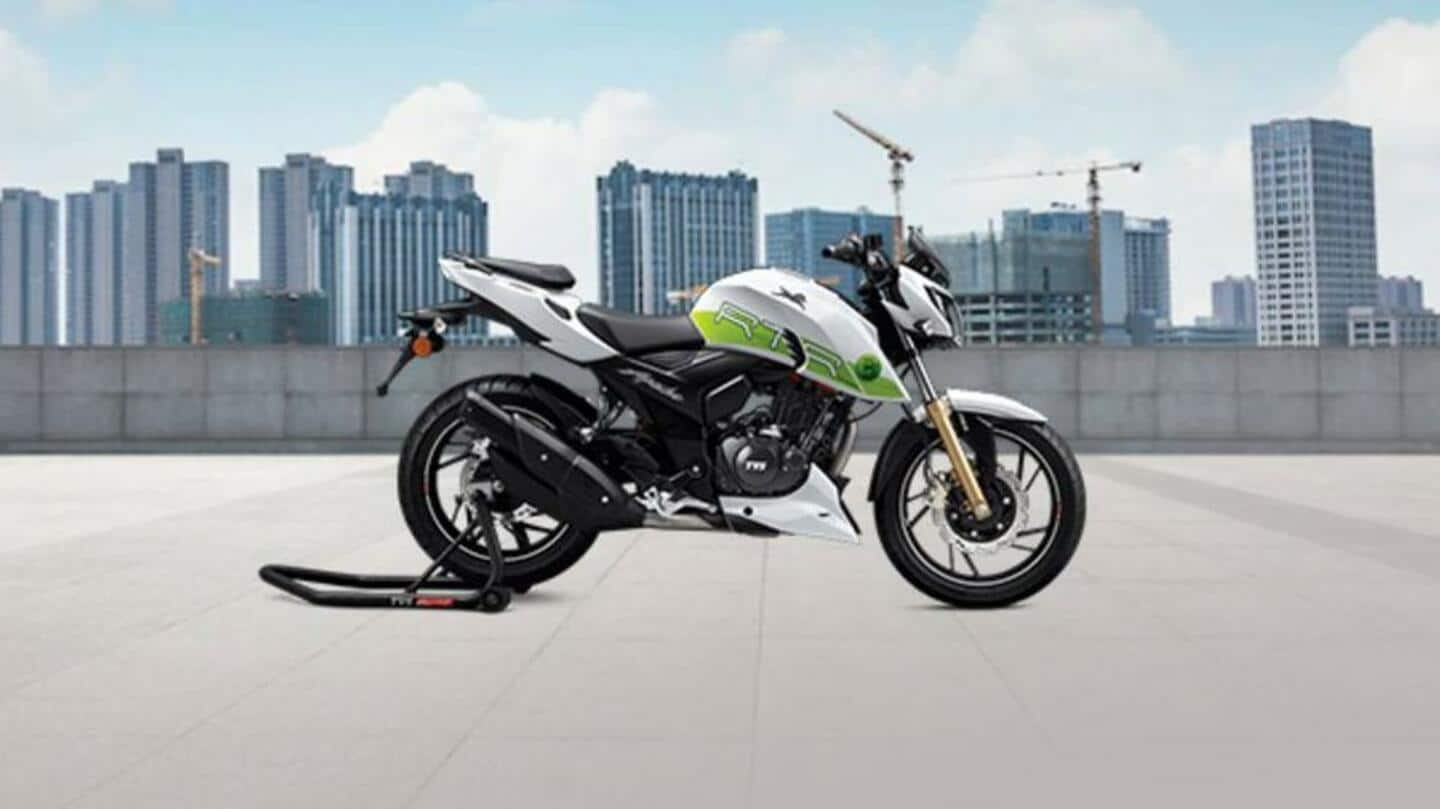
Ethanol-powered two-wheelers will arrive by 2024, says TVS Motor Company
What's the story
The Society of Indian Automobile Manufacturers (SIAM) organized a technology demonstration on 'Ethanol Adoption' in New Delhi yesterday.
The event showcased the commitment of brands like Bajaj, Honda, Hero Motocorp, Suzuki, and TVS Motor Company to shift to ethanol-based flex-fuel for cleaner emissions and reduce India's dependency on costly fossil fuels.
TVS claimed the first flex fuel-powered two-wheeler will arrive by October 2024.
Context
Why does this story matter?
With the ever-rising cost of fossil fuels such as petrol and diesel and the drastic rise in pollution levels, almost every automaker has been developing Battery Electric Vehicles (BEVs) in recent years.
However, given the time required to develop the charging infrastructure, alternative fuels such as CNG or ethanol make better sense in developing markets like India, at the moment.
Advantages
Ethanol has lower emissions than petrol and diesel
Ethanol is an organic fuel much like petrol or diesel. However, the former is renewable and available in different blend levels such as E10, E15, E85, or E98.
While E85 (83% ethanol) packs about 27% less energy per gallon than petrol, it helps reduce tailpipe emissions by up to 40%.
It also has a higher octane number, which provides increased power and performance.
Information
Conversion to flex-fuel is cheaper and easier
While Battery Electric Vehicles are much greener to run, conversion from ICE-powered vehicles to all-electric ones is a costly affair for many established manufacturers. Given the slow development of charging infrastructure on our shores, changing to ethanol-powered vehicles is a better choice for now.
Future
Centre is pushing for ethanol-powered vehicles
India's Ethanol Blending Program is supported by the Union government. This move is done to reduce our dependency on costly fuel imports.
Union Minister Nitin Gadkari has urged all automakers in India to shift to cleaner flex-fuel at the earliest.
The deadline for pan-India compliance with the E-20 regulations is 2025. Meanwhile, India wants to achieve net zero emissions by 2070.